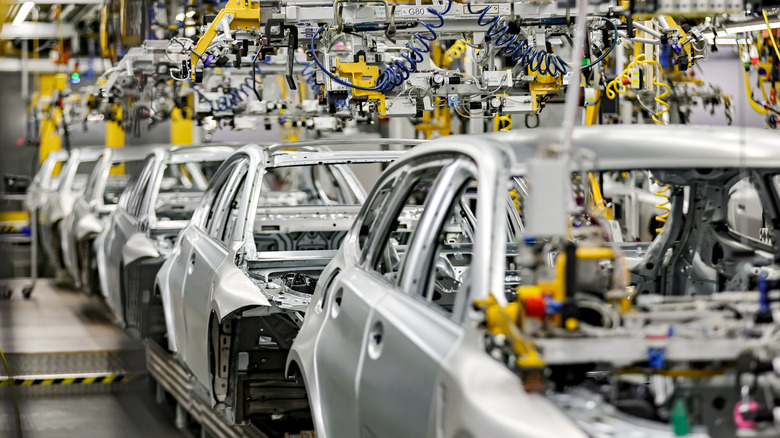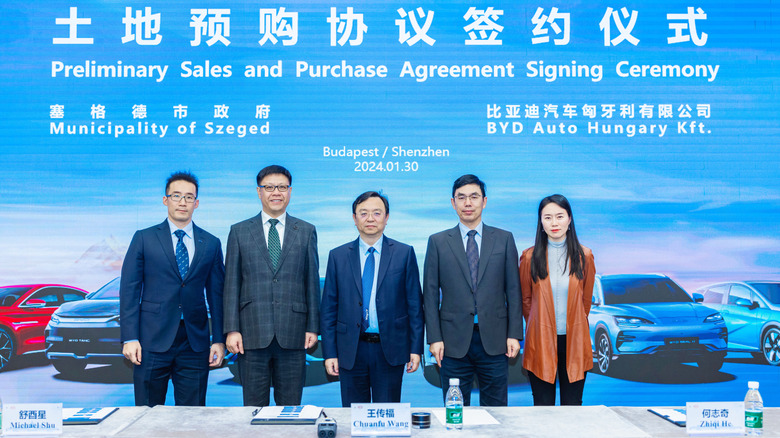
The auto-industry consensus says that Chinese EVs are preparing to conquer Europe, but both Europe and China are saying, "Not so fast!" Europe is defending itself with import tariffs, forcing Chinese automakers to move to Plan B and fall back on their ability to build plenty of good, old-fashioned, non-tariffed gas-powered vehicles.
Plan B is working out pretty well, as Chinese car companies in April increased their European market share to almost 5%, up from about a 2.5% last year, according to the New York Times. Doubling overall share so quickly in a mature region is a stunning achievement. But it's also a reminder that while much of the action with future Chinese exports will probably be electrified, the Middle Kingdom is no slouch with old-school combustion: well over half the 31 million autos made in China in 2024 still ran on petrol.
In fact, there's a whiff of surrender in Europe, as China was able to maneuver around tariffs so easily. The Times talked to an Italian dealership executive, and he didn't hold back, saying that major Chinese automakers like BYD, Geely, and Chery have gotten so skilled at making cars that they can do "whatever they want." In a word: Yikes!
 Leonhard Simon/Getty Images
Leonhard Simon/Getty Images
The regional playing field is wide open for China, and there isn't going to be much pushback from the U.S. General Motors abandoned Europe when it sold its Opel/Vauxhall brands in 2017, and Ford is focused on commercial vehicles in the region, where it has led the market for about a decade. Consequently, it's up to the Europeans to either fend off the Chinese or accept that China's automakers offer Europe's customers an irresistible combination of good cars and good prices.
Some of us might wish this were happening in the U.S., where buyers have long embraced foreign competition and are better off for it. However, before we get too upset, let's remember that in Europe the situation is likely to become rapidly politicized, in two ways. First, China's carmakers are benefitting from how badly Tesla has botched its European PR. There are many customers who will now never consider a Tesla because Elon Musk has embraced the extreme right in several countries, especially Germany. Buying a Chinese car is a way to send Tesla a message.
Second, European governments will be pressured by the left and the centrist parties to support labor and maintain employment. The upshot is that Europe's long-term problem of excess domestic manufacturing capacity could worsen.
 BYD
BYD
China's Europe strategy, as the Times pointed out, is asymmetrical: carmakers are going after Italy and Spain, where German and French vehicles are less of a factor. These are attractive markets, together accounting for roughly three million in annual vehicle sales. But China's automakers may find that their beachhead is difficult to expand, and that continuing to compete on price leads to structurally unprofitable car models.
On the other hand, China has its own excess capacity problems and needs export markets to sustain its own auto-manufacturing labor force. In this sense, pushing a lot of Chinese brands into Europe makes sense as an advertising play, proving to Europeans that a cheap Chinese hybrid or diesel is on par with what, say, Fiat sells. As the Times pointed out, one big-name Chinese brand, BYD, is also opening factories in the low-cost European countries of Hungary and Turkey, which should mitigate some of the political fallout (jobs are jobs, after all.) The move will also eliminate the tariffs, which can hit 45 percent on certain Chinese EVs.
The European market today is starting resemble the U.S. market in the 1980s, when Japanese and German carmakers arrived in force and redefined expectations for quality and affordability, then began standing up their own factories in the U.S. South. The results were terrific for Americans. Europeans should bear that in mind as Chinese cars become more common.
















